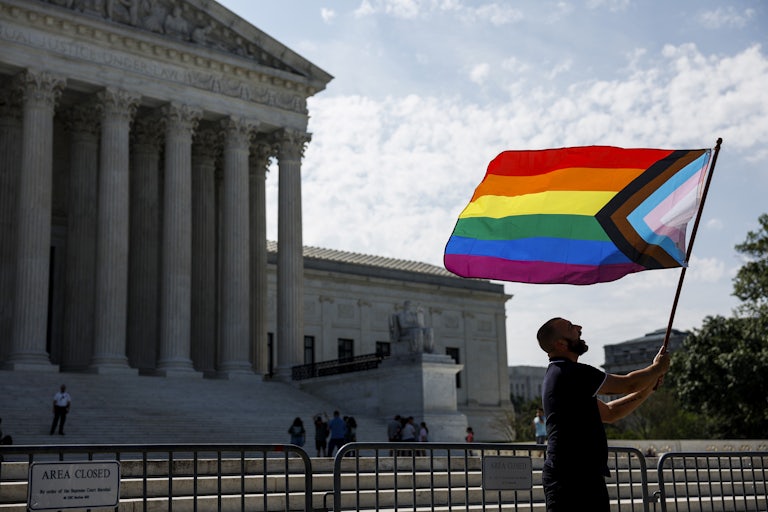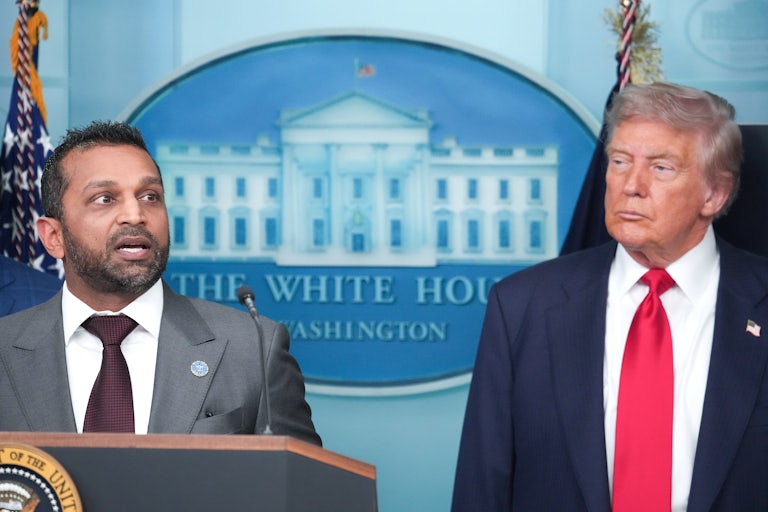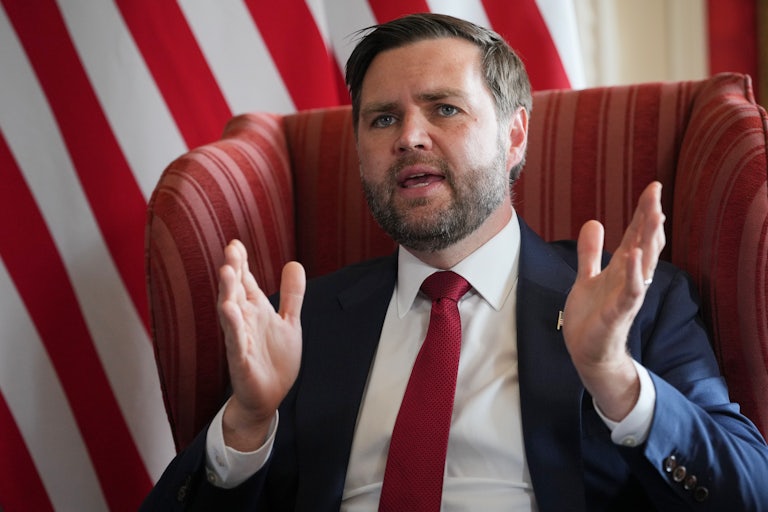Clarence Thomas’s Most Terrifying Wish Is About to Come True
The Supreme Court has been asked to hear a new case about the future of same-sex marriage.

Same-sex marriage could soon be back on the Supreme Court docket.
Kim Davis, the Kentucky county clerk who was jailed in 2015 for refusing to issue same-sex marriage licenses, is appealing her case. Davis is appealing a $100,000 jury verdict for emotional damages plus $260,000 for attorneys’ fees, reported ABC News Monday.
In a petition filed last month, Davis claimed that her First Amendment rights protecting her religious freedom effectively immunized her from repercussions for denying the licenses.
“The mistake must be corrected,” Davis’s attorney Mathew Staver argued in the petition, further condemning Justice Anthony Kennedy’s majority opinion in Obergefell v. Hodges as “legal fiction.”
“This court should revisit and reverse Obergefell for the same reasons articulated in Dobbs v. Jackson Women’s Health Center,” reads one titled portion, under which Staver claims that “Obergefell was wrong when it was decided and it is wrong today because it was grounded entirely on the legal fiction of substantive due process.”
Staver’s argument alluded to Justice Clarence Thomas’s concurring opinion in Dobbs, which overturned the nationwide right to abortion established in Roe v. Wade. In his 2022 opinion, Thomas argued that the court “should reconsider” its substantive due process precedents, including contraception, same-sex marriage, and even same-sex relationships.
Davis served six days in jail for refusing to issue the licenses. Her appeal marks the first time that the nation’s highest judiciary has been formally asked to reconsider the landmark decision.
“If there ever was a case of exceptional importance,” Staver wrote, “the first individual in the Republic’s history who was jailed for following her religious convictions regarding the historic definition of marriage, this should be it.”
Gay marriage was effectively legalized in 2015, when the Supreme Court ruled in Obergefell that keeping marriage licenses from same-sex couples was discriminatory. The decision mandated that all states issue licenses to gay and lesbian couples, and required states to recognize marriages performed in other jurisdictions, as well.
Marriage equality was further protected at the federal level in 2022, when the Respect for Marriage Act became law, requiring all 50 states to recognize same-sex marriages performed in other states. It did not, however, formally legalize gay marriage, so if the Supreme Court were to take up Davis’s case and overturn Obergefell, gay marriage rights would fall with it.
Roughly 69 percent of Americans support same-sex marriages, according to a 2024 Gallup poll. Republican support for gay couples’ equal rights has dipped in recent years, however, from a record high of 55 percent in favor of it in 2021 to 46 percent in 2024.








